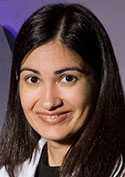17 May Almost 1/3 of Women in Academic Medicine Report Experiencing Sexual Harassment
MedicalResearch.com Interview with:

Dr. Reshma Jagsi
Reshma Jagsi, MD, DPhil
Department of Radiation Oncology, University of Michigan
Ann Arbor, MI 48109
MedicalResearch.com: What is the background for this study? What are the main findings?
Dr. Jagsi: There has recently been considerable media attention to certain egregious individual cases of sexual harassment, but it has been less clear whether these cases were isolated and uncommon incidents or whether they are indicative of situations more commonly experienced by academic medical faculty. An excellent survey study had previously documented that 52% of female faculty in 1995 had experienced harassment, but many of those women had attended medical school when women were only a small minority of the medical students (let alone faculty). More recent estimates of faculty experiences are necessary to guide ongoing policies to promote gender equity in an era when nearly half of all medical students are women.
We found that in a modern sample of academic medical faculty, 30% of women and 4% of men had experienced harassment in their careers.
MedicalResearch.com: What should readers take away from your report?
Dr. Jagsi: There is probably a false perception among many that sexual harassment is a thing of the past, and that these sorts of experiences are aberrational for working women today, especially those in powerful professions like medicine. It’s important to recognize that such experiences aren’t yet rare, both to inform policy and to let women know so that they don’t blame themselves if they do have such an experience. The idea that such experiences are rare can impede reporting and solicitation of help.
MedicalResearch.com: What recommendations do you have for future research as a result of this study?
Dr. Jagsi: Ongoing research is necessary to evaluate what components of interventions that seek to promote gender equity truly cause the sort of cultural transformation that is necessary here. Research is needed to direct resources to ensure gender equity and success among all promising individuals who seek to improve human health through careers in academic medicine.
MedicalResearch.com: Thank you for your contribution to the MedicalResearch.com community.
Citation:
Sexual Harassment and Discrimination Experiences of Academic Medical Faculty
Reshma Jagsi MD, DPhil, Kent A. Griffith MS, Rochelle Jones MS, Chithra R. Perumalswami MD, Peter Ubel MD, Abigail Stewart PhD
JAMA May 17, 2016 Volume 315, Number 19
Note: Content is Not intended as medical advice. Please consult your health care provider regarding your specific medical condition and questions.
More Medical Research Interviews on MedicalResearch.com
[wysija_form id=”5″]
Last Updated on May 17, 2016 by Marie Benz MD FAAD
